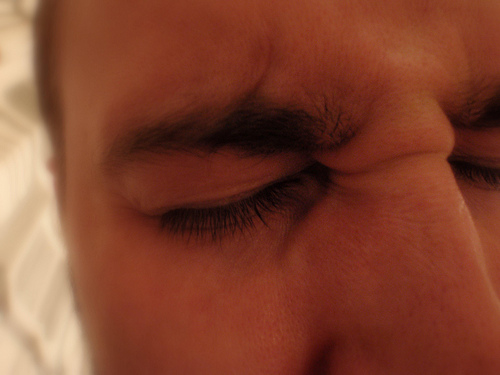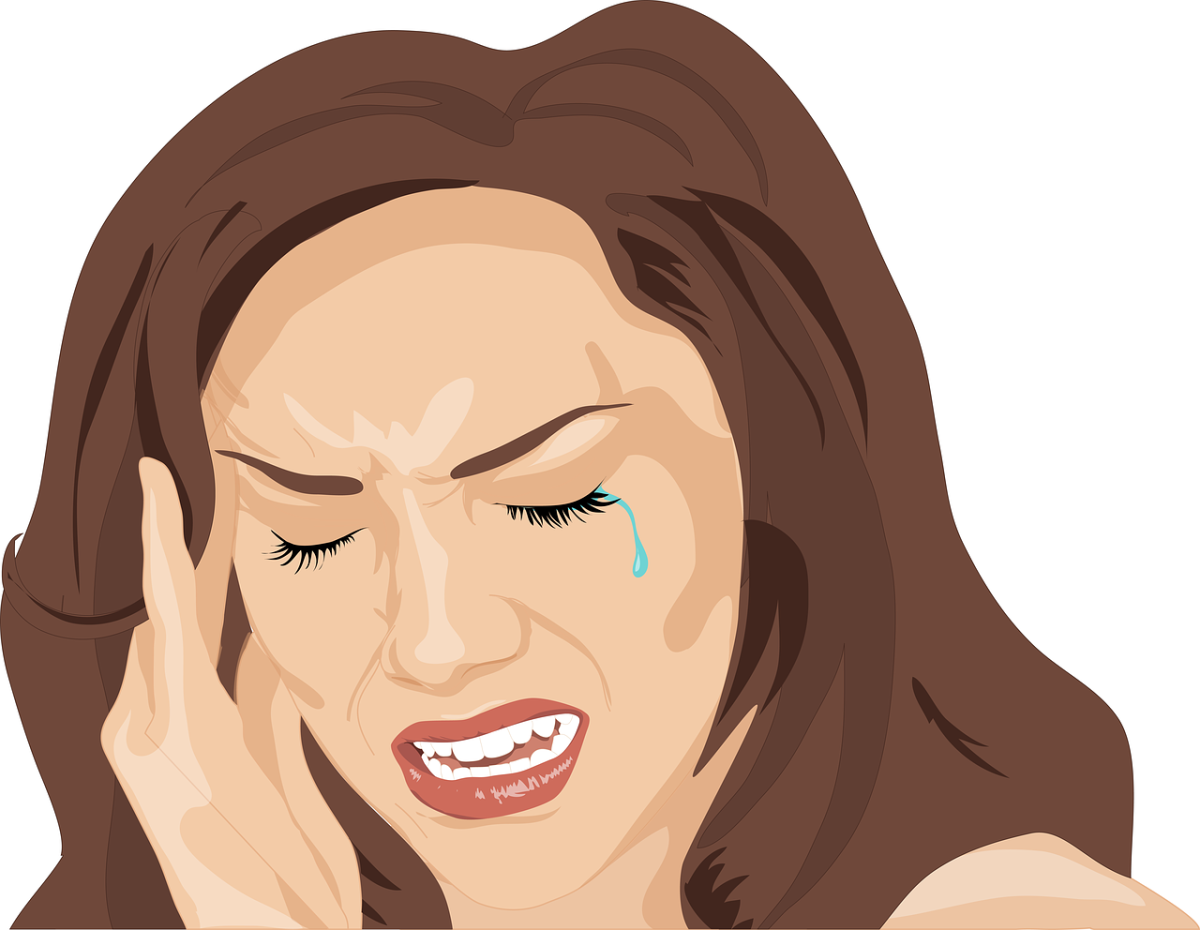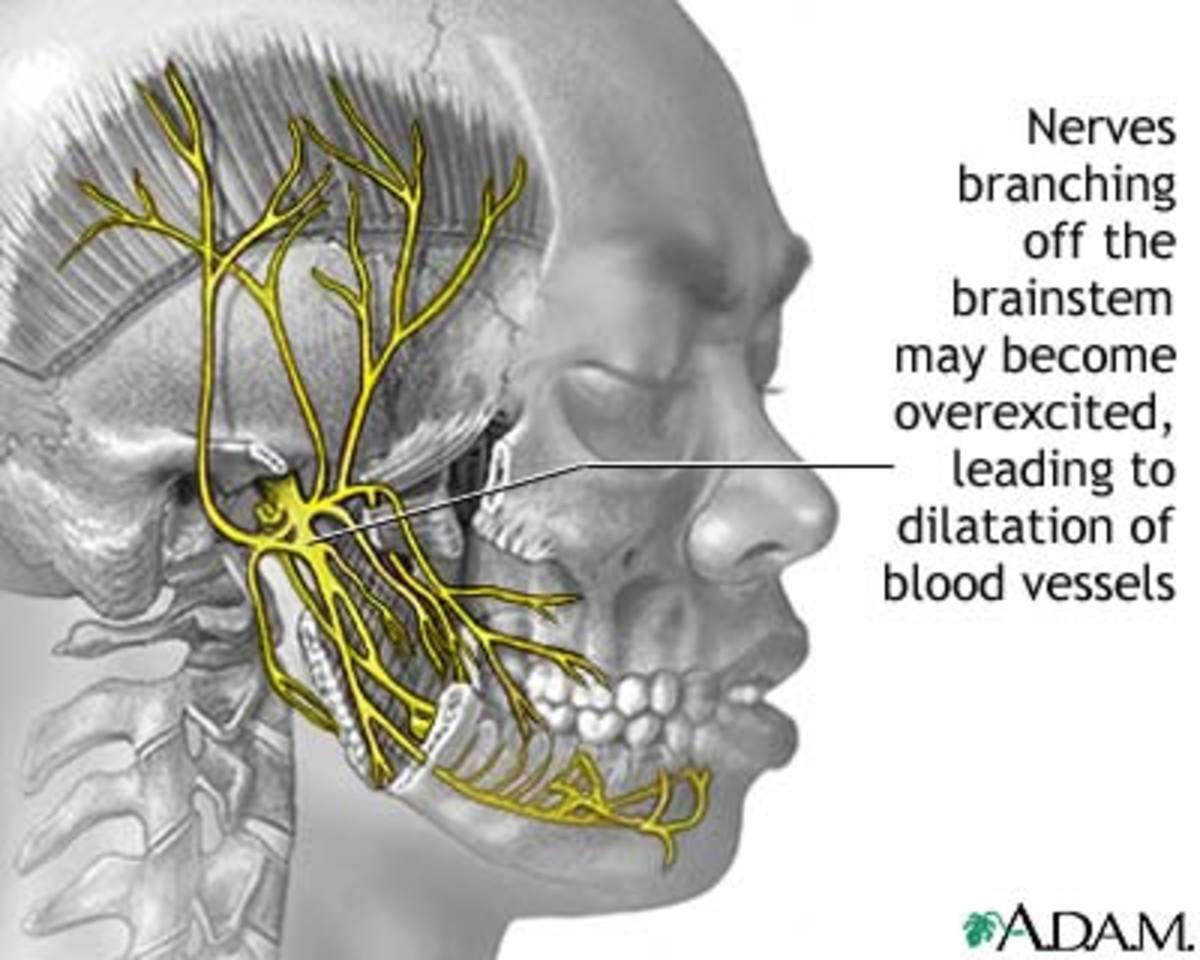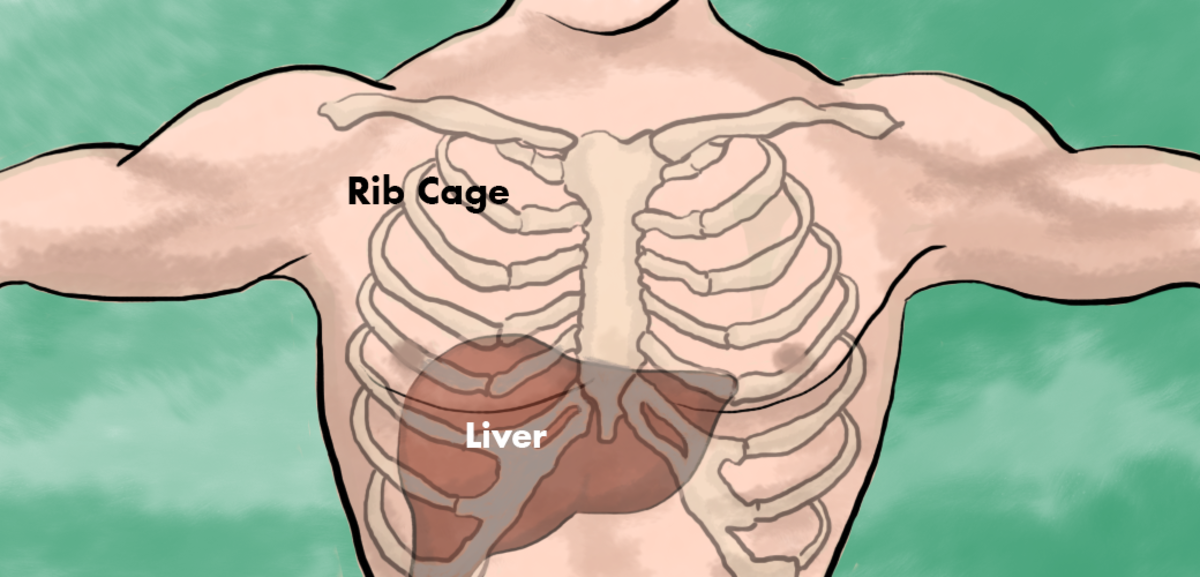Treatment and Prevention for Migraine Headaches

What Is a Migraine Headache? What Are the Symptoms of Migraine Headaches?
If you or someone you know have migraine headaches, no one needs to tell you that this type of headache is characterized by intense throbbing pain, usually on one side of the head and is often accompanied by nausea, vomiting, and extreme sensitivity to light and sound. The pain of a migraine headache is aggravated by physical activity. Some people experience sensitivity to odors and a small number of people experience sensory or visual changes, auras, before, during or after a migraine headache.
As someone familiar with these moderate to severe types of headaches, you already know this and may wish the people around you could understand the intensity of the migraine episodes and the pervasive way these headaches affect you and your life.
As someone who has experienced migraines, frequently in the past and with less frequency in the present, I know that when the pain starts in earnest and the physical symptoms that accompanies it, you just want to find a way to make it go away so you can get back to life.
Preventing migraines from happening in the first place is the ideal solution, but that's not always possible. The next best step is learning what treatment(s) work for your individual situation, to reduce the pain, nausea and sensitivity.


What migraine triggers have you identified that lead to your migraine headaches?
What Causes Migraine Headaches?
Migraine headaches are complex and while scientific research continues to learn more about this condition, little is known about the actual causes of migraines. Heredity and environmental factors have been identified as playing a role in the condition with 70 percent to 90 percent of those people with migraine headaches having a family history of migraines.
A variety of environmental factors have been associated with bringing on, or triggering, a migraine headache and are referred to as migraine headache triggers. These migraine triggers can vary widely from one individual to another, and may be genetic in origin. Some of the more common migraine triggers include:
- Alteration of sleeping pattern or inadequate sleep
- Excessive fatigue
- Emotional stress
- Missing or delaying a meal
- Bright lights, sunlight or fluorescent lights
- Medications that cause swelling of the blood vessels
- TV and movie viewing
- Excessive caffeine consumption or withdrawal from caffeine
- Excessive noise
- Smoking or secondhand smoke
- Intense physical exertion, including sexual activity
- Changing weather conditions or changes in altitude
- Hormonal changes in women, often associated with the menstrual cycle
- Unusual smells -- pleasant or unpleasant
- Certain foods; chemicals and preservatives within the foods are known triggers in up to 30 percent of migraine headaches: Common migraine triggers are aged cheese, foods with monosodium glutamate (MSG), highly salted foods, red wine, chocolate, nitrates, aspartame and beer
- Oral contraceptives
- Vasodilators such as nitroglycerin
- Depression
If you experience migraine headaches, you likely identified some of the things that have lead to one or more of your migraines in this list. The list is not all-inclusive; you may be aware that there are other stimuli or activities that precede the onset of your migraine.
What is important here is that you begin to understand what may be affecting you adversely so you can begin to make any changes necessary to avoid or reduce your exposure to your migraine headache triggers.
Tips to Prevent Migraine Headaches
Headache Diary/Headache Journal Options
Here are some Headache Diary/Headache Journal forms and apps that you can use to record information about your headaches, including type, severity, length, activity before headache and more:
Headache Diary Form, provided by the National Headache Foundation
IHeadache app for iPhone, iPad, Blackberry and iPod Touch; free download with ads or $9.99 without ads
Migraine Diary app for iPhone and iPad; $1.99 to download
Migraine Diary, provided by MigraineTrust.org can be used as an online tool or downloaded as a pdf file and printed for use
How to Prevent Migraine Headaches
If anyone knew the absolute answer to this, he or she would be rich beyond their dreams and recipients of gratitude from the millions of people who experience migraine headaches around the world.
If you've ever experienced even one or two migraine headaches, you realize how preferable it would be to prevent them from occurring rather than treating a migraine once it has taken hold. Due to the yet limited understanding of all that may cause migraines, there are no absolute preventive methods that will work for every individual.
It stands to reason that one of the ways you may able to prevent experiencing a migraine headache is to learn what triggers these headaches for you. This is where a headache diary or headache journal may be a useful tool. Keeping a record of events before, during and after a migraine can help both you and your health care provider to develop better prevention and treatment methods. (See side bar for Headache Diary options.)
In addition to learning what triggers your migraines and changing the behaviors and activities, there are some lifestyle changes you can make that may lead to experiencing fewer migraine headaches in the future:
- Exercise regularly. If you're not physically active now, talk with your health care provider about what types of exercises would be most appropriate for you and your individual health situation. With whatever exercise(s) you choose, remember to begin slowly, with a warm-up period. Sudden, intense physical activity may trigger a migraine headache.
- Establish and follow a regular sleep routine. If you're a shift worker or parent of young children, this lifestyle change may be difficult to follow. It's important to establish a regular bedtime and wake-up time, making sure you are allowing yourself adequate hours of sleep time each day.
- Reduce stress. No one said these lifestyle changes would be quick or easy, but they are effective. Learning to reduce negative reactions to stress-inducing events or people can lead to an improved quality of life overall and decrease the frequency of your migraine headaches. Suggested methods for stress reduction can be found in Different Methods to Help You Calm Down and Relieve Stress.
- Eat at regular times/intervals. Skipping meals is not in your best interest for a variety of reasons, but also because doing so may precipitate a migraine headache. Avoid foods and beverages that have triggered migraines in the past. If you eat three nutritionally-balanced meals each day and are still experiencing migraine headaches, you may want to try eating four to six smaller meals spread over a longer time period in the day to see if this reduces the frequency of your headaches.
- Reduce the effects of estrogen. Women who are taking birth control pills or hormone replacement therapy and experiencing migraine headaches may want to discuss the issue with their health care provider to see if any alternatives or changes in dosage exist. Women whose migraine headaches are related to their menstrual cycles usually experience fewer such headaches during pregnancy and after menopause. For those women whose migraines are associated with the menstrual cycle, learn the timing of the headaches so you can be prepared to take other preventive steps.
- Biofeedback: This is a complementary medicine technique that trains you how to control certain involuntary body processes such as heart rate, blood pressure and muscle tension. This technique may be useful at the first signs of an impending migraine to prevent a full attack or reduce the intensity of the headache.
Medications to Prevent Migraine Headaches
There are a number of preventive medications available to help stave off the frequency, intensity and duration of migraine headaches. MayoClinic.com advises you may be a candidate for preventive medication therapy if you have two or more debilitating migraine attacks each month, if pain-relieving medications aren't working, or if your migraine symptoms include a prolonged aura or are accompanied by numbness and weakness.
Keep in mind that no medications come without the possibility of side effects or adverse reactions. Talk to your health care provider about all of your concerns when the topic of preventive medication for your migraines comes up. Be sure to disclose all other medication you are taking, including over-the-counter medications and diet supplements.
Many preventive migraine headache medications are taken on a daily basis, or may be used when a triggering event is upcoming, such as your menstrual cycle.
Preventive Medications for Migraine Headaches:
- Cardiac drugs: Several medications that have heart conditions as their primary indication for use also help in the prevention of migraines for many people. The beta blocker propranolol has long been used successfully in this way. Calcium channel blockers such as verapamil and the antihypertensive medication, lisinopril, are used to prevent or regulate migraine headaches frequency and/or severity.
- Antidepressants: Some of the antidepressant medications are useful in the prevention of migraines. Amitriptyline, a tricyclic antidepressant, is one such medication and has been in use for many years. Other classes of antidepressants such as serotonin reuptake inhibitors (SSRIs) and serotonin-norepinephrine reuptake inhibitors (SNRIs) have been shown to be less successful in migraine prevention, with the exception of venlafaxine which is demonstrating good results in early research.
- *** These antidepressant medications are unlikely to provide full effectiveness until they have been taken for a period of time, up to six weeks. Even then, dosages may need to be changed before you and your health care provider can determine if the medication prescribed is helping to reduce your migraines.***
- Anti-seizure medications: Three anti-seizure medications are associated with reduced frequency of migraines: valproate, topiramate and gabapentin. Lamotrigine has helped some people who have migraines with auras.
- Botulinum toxin type A (Botox): Botox has received U.S. Food and Drug Administration approval for use in adults with chronic migraine headaches. The procedure consists of injections into muscles of the forehead and neck. For this treatment to have ongoing effectiveness, it usually needs to be repeated every three months.
Another type of preventive medication for migraine headaches are classified as abortive medication. This type of medication is taken at the first sign of an impending migraine with the intent to stop it, abort it in its tracks.
Treatment Options for Migraine Headaches
Medications Used for Treatment of Migraine Headaches
There are several types of medications that may be used to treat migraine headaches. Treatment is individualized depending on various factors, but the intended outcome is relief of the migraine pain and its associated signs and symptoms.
- Over-the-Counter Medications: Pain relievers such as acetominophen and ibuprofen may relieve migraine pain for some people if taken as soon as symptoms are noticed. Migraine pain relievers such as Excedrin Migraine that contain the combination of aspirin, acetominophen and caffeine may relieve moderate migraine pain. It is important to take these medications according to directions; don't increase the dose or frequency without checking first with your health care provider.
- Prescription Pain Relievers: Use these medications only as directed by your physician. Overuse can result in rebound headaches, overdose or dependency.
- Triptans: This class of drugs is the one of choice for many people with migraine headaches, sometimes also referred to as abortive medications. These drugs, such as sumatriptan and zolmitriptin, relieve migraine pain and its associated symptoms in many people. People at risk for stroke or heart attack are not good candidates for triptan therapy.
- Anti-nausea medication: Because nausea with or without vomiting is a frequent feature of migraine headaches, medication to combat this symptom is often prescribed.
- Dexamethasone: A corticosteroid medication, dexamethasone is sometimes used to increase the effectiveness of pain relief medication. The potential for steroid toxicity prevents frequent or long-term use of this medication.
How to Use Acupressure Points to Reduce Migraine Pain
Alternative and Complementary Medicine Prevention and Treatment Options for Migraine Headaches
More and more conventional health care providers are embracing integrative medicine, meaning some alternative and complementary medicine techniques are becoming part of traditional Western medicine. If your head care provider is an integrative medicine proponent, you will likely receive suggestions for one or more of the research-proven alternative or complementary therapy methods.
The National Center for Complementary and Alternative Medicine, NCCAM, advises that you don't substitute unproven complementary or alternative therapies for proven conventional treatment. Talk to you health care provider and let them know if you are currently using any such methods, including any dietary supplements you may be taking.
Keep the lines of communication open between you and your health care provider about any and all approaches you are using for your health. If you're considering seeking professional services of a complementary therapy provider, ask your health care provider for recommendations.
Let your health care provider know if you are pregnant or nursing or before beginning any new treatment or therapy, including the use of dietary supplements.
Prevention and Treatment Strategies of Migraine Headaches via Alternative and Complementary Medicine
Name of Therapy
| Preventive, Treatment or Both?
| Important Information
| Source of Info
|
|---|---|---|---|
Acupuncture
| Treatment
| Clinical trials suggest acupuncture may reduce headache pain; acupuncture as an alternative practice has been around for 100s of years
| MayoClinic, NCCAM
|
Biofeedback
| Treatment
| MayoClinic, University of Maryland Medical Center
| |
Manual Therapy
| Preventive
| Massage and/or chiropractic treatment have been shown to reduce migraine frequency
| Mayo Clinic, NCCAM
|
Feverfew (herbal)
| Both
| Do not take if pregnant. Side effects may include open mouth sores an upset stomach
| Mayo Clinic, NCCAM
|
Butterbur (herbal)
| Both
| Do not take if pregnant. May cause mild G.I. upset. Look for products labeled PA-free, harmful substances that are sometimes added to butterbur products
| Mayo Clinic, NCCAM
|
Riboflavin (Vit. B-2)
| Preventive
| Do not take high doses of riboflavin if pregnant.
| Mayo Clinic, NCCAM
|
Coenzyme Q-10
| Preventive
| Mayo Clinic, NCCAM
| |
Magnesium
| Preventive
| Research conducted to date has been inconclusive on the effects of magnesium in preventing migraines. May cause diarrhea wth use
| NCCAM
|
Cognitive-Behavioral Therapy
| Preventive
| When used in conjunction with medication, cognitive-behavioral therapy has resulted in fewer migraines experienced.
| NCCAM
|
Resources and References for Treatment and Prevention of Migraine Headaches
- Migraine - MayoClinic.com
Migraine — Comprehensive overview covers symptoms, causes, treatment of this debilitating variety of headache. - Migraine | National Headache Foundation
- Migraine Research Foundation -- Fact Sheet
Migraine is not your typical headache; for many sufferers, it is a chronic illness that significantly diminishes quality of life. - Migraine Headaches
- Nonmedication, alternative, and com... [Continuum (Minneap Minn). 2012] - PubMed - NCBI
PubMed comprises more than 22 million citations for biomedical literature from MEDLINE, life science journals, and online books. Citations may include links to full-text content from PubMed Central and publisher web sites. - Emerging treatment for chronic migra... [Expert Opin Emerg Drugs. 2012] - PubMed - NCBI
PubMed comprises more than 22 million citations for biomedical literature from MEDLINE, life science journals, and online books. Citations may include links to full-text content from PubMed Central and publisher web sites. - Biofeedback
Disclaimer
This hub is informational in nature and not intended to replace or be used instead of medical advice. Please see a health care provider for diagnosis, treatment, or prevention of any headaches you may be experiencing.






